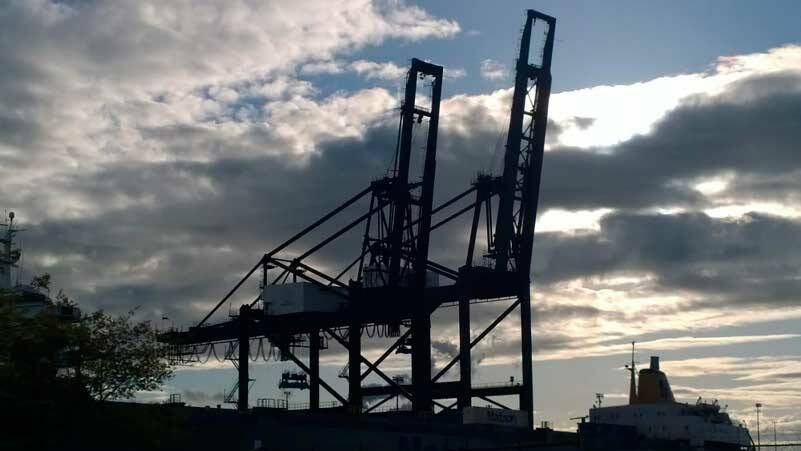By Morf Morford, Tacoma Daily Index
Near-shoring and off-shoring
The concerns about supply chain problems over the past couple years have highlighted a dynamic of business few of us think about – where our products, from coffee to auto parts, and much more – come from.
Where materials come from, where they are assembled and how they get to us matters much more than it did just a few years ago when we could go into any store and find what we were looking for.
But suddenly, when no one was looking, key links in what had been a smoothly operating supply chain broke – or evaporated. Some forever.
Off-shoring, which meant finding a provider literally anywhere in the world who offered the best prices, was the answer to affordable consumer products of every kind from kitchen implements to shoes – until, of course, it wasn’t.
Transoceanic shipping, the most fluid aspect of all in a global economy, suddenly didn’t work.
Ships were stalled, or even literally stuck at ports around the world.
And almost over night, proximity (or near-shoring) mattered more than anything.
With recent fuel prices, long distant shipping is becoming less appealing and economically feasible.
Short term (or at least relatively short term) shipping become not only more profitable, but also more timely and practical.
According to the US Chamber of Commerce’s recent Summit of the Americas, about half of US trade is with other nations and economies in the Western Hemisphere.
Stabilizing and investing in economies within the Western Hemisphere will not only lead to a more durable and reliable economy but will also contribute to a major problem that plagues the USA – and virtually every other nation and economy in the Western Hemisphere; immigration.
For more on what the US Chamber of Commerce is doing around the world, look here.
There are a thousand hacking at the branches of evil to one who is striking at the root. – Henry David Thoreau, Walden
I am sure we would all agree that no one, with full and free choice, would leave their home and extended family.
Especially to go to a country where they do not know the language or culture or have any friends or family, unless they literally had no other option.
In a sense, labor is much like any other resource; the closer to the source we can use it, the better, while the further it has to be transported, the more complicated, expensive, and all-too-often, dangerous.
Immigration
For everyone involved, the closer workers can live and establish careers to their original, familiar homes and cultures, the better.
Our immigration “problem” oddly enough, has very little to do with immigration laws, policies or quotas.
Virtually every “immigrant” would rather stay home and work there instead of risking life and health (and of course the life and health of friends and family members) to cross some distant border and put one’s self vulnerable to all kinds of exploitation and hazard.
The best and most durable immigration policy would be one that anchored workers in their immediate and local economies.
The irony is that a set of policies of philosophies that made workers and citizens a thousand miles away from our border and economy more safe, stable and productive makes us, at the same time more safe and stable. And certainly more profitable and productive.
It turns out that immigration, like war, public health care and climate change impacts every one of us and has little to do with political borders or economic philosophies.
A healthy economy is, by definition, resilient, resourceful and responsive to change and any challenges.
And most challenges, as everyone with a procrastinator in the family knows, almost always become overwhelming with time.
Opportunities, as well as difficulties, become greater over time.
And costs, as well as benefits, accumulate. As an anonymous saying has it, “It is easier to build strong children than to repair broken men.”
And in extension, it is far easier to expand and build on an existing economy than attempt to restore and rebuild a ruined one.
The impacts of immigration, like war, public health care and climate change, can be like compounding interest, and can become huge, but we could also, with some forethought, make some steps now to use them as the best investment.
For individuals, or as a larger society, whether it is for urban infrastructure, educational systems, health care or climate change remediation, every dollar invested as early as possible compounds and grows substantially over years to come.
And some companies, both local and global have learned that going to the lowest bidder when it comes to production does not always lead to quality or reliable product availability.
Consumer and other businesses want – or even need – consistency more than anything.
A reliable product delivered on time is worth far more than any promises or fantasies of profit.
Oddly enough, a smoothly running global economy works best, and for the longest, when its supply chains are as short as possible.
The best “bottom line” after all is one that is as solid and stable as possible.






